I am super excited to introduce you to our Frolicious Beauty Anne-Tso Tchissambou. Early this year Anne-Tso shared her new short haircut on Facebook. Find out what makes Anne-Tso cut her hair off and her opinion about natural hair bloggers.
Meet Anne-Tso Tchissambou
My new haircut almost cries out: “This is me, here I am!”.
Anne-Tso Tchissambou was born in Siegen, a small town in the rural area of North Rhine-Westphalia (Germany). Her undergrad program made her move to Cologne for three years. Since summer 2016 she lives and works in Canada.
What made you wear your hair in its natural state?
Anne-Tso Tchissambou: I had my so called “big chop” in 2014. My friends and I almost did it simultaneously back then. One after the other decided to stop relaxing her hair and wearing weave- ins or wigs. Natural hair had become a trend. Those who kept on relaxing theirs were labelled as self-hating and those who decided to transition instead of cutting the dead ends off weren’t brave enough for the big step. Little by little, unspoken rules and standards which one had to meet in order to be accepted as a natural arose. In retrospective, I doubt that any of us understood the whole idea of a big chop. In fact, I think we missed the point by far. After all, it is about a lot more than re-growing healthy hair, but especially about dealing with one’s identity as a POC (person of color). As a result, we didn’t experience the healing aspect a big chop entails and it did not take long until I had a new weave sewn in again. At that point, I would call it a “protective style”, seemingly to protect my hair from weather and damaging. When in reality, the only time I wore my afro from that day on was in the gap between the next hairstyle. Instead, I went for box braids, crochet braids or lace wigs with a kinky structure. Basically “fake it ‘til you make it” meaning I would create an illusion of what would later turned out to become my own afro. This was a rather sobering hair journey, still I would never again put damaging chemicals in my hair. Not even a texturizer.
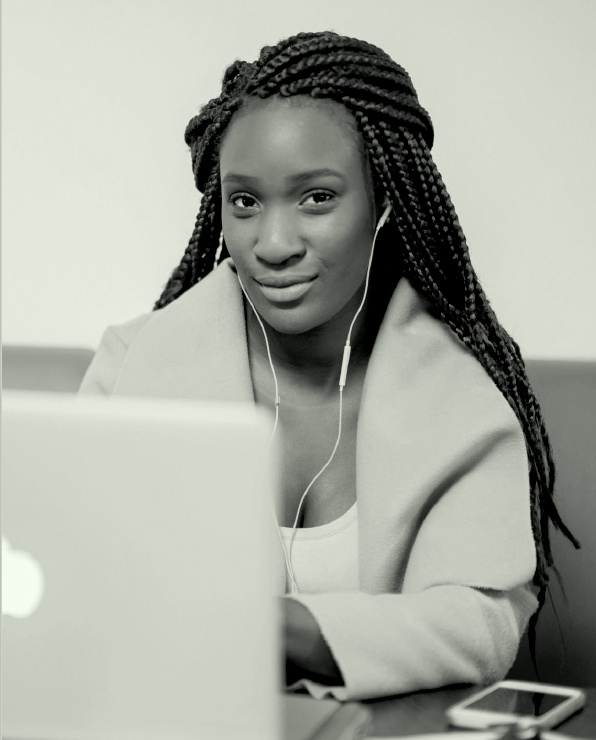
How much effort did you have to put into hair care?
Anne-Tso Tchissambou: It was way too much! Initially, I would still browse through various afro hair blogs while being highly motivated. I learnt how to do twist-outs, braid-outs, bantu knots and wore wash’n’gos. Every night before going to sleep, I would stretch my hair for the next day by using the African thread method and massage my edges with Jamaican castor oil. A fortune was spent on hair products before I finally found “the right” product line for my hair. I also soon learnt that whatever works for somebody else is not a guarantee for yourself. My friends’ recommendations would sometimes make my hair dry or even brittle. Later, I started making my own oil mixes with pharmacy or organic store products. My hair routine changed over the years, but there is barely anything that has not been used from native shea butter through aloe vera gel, coconut oil, medical clay, bananas, egg yolk, cider vinegar, avocados to honey. Thanks to weekly or monthly deep treatments, my hair was healthy and growing beautifully. However, by the time I started working full-time, I was over investing this much of my personal time into haircare.
Why are you wearing your hair very short now?
Anne-Tso Tchissambou: For one, the time and price ratio made the decision to shave off my afro very easy. But it actually came down to the defiant attitude I developed towards “natural hair” as a concept or movement over time. Hair is so much more than just that to WOC (women of color). It is as much of a political statement than it is a walking advertisement for one’s self-acceptance. I have heard black women say they don’t dare to wear their hair in its natural state because of the fear of being rejected by men. Ironically enough, this was in reference to men that are black themselves. Another point is that, instead of celebrating the diversity of afro hair, some fros are perceived as more beautiful than others. The bigger, the better and defined fros being most desirable, so it seems. The fact that the 3b hair type is a curl pattern that often comes naturally to many (not all) mixed race and that other hair types can only achieve this look through hours of styling, leads to tensions within our community. This is personally the worst to me. Then there are external factors like everyday racism or discrimination at the workplace. The afros of many of us have been touched unauthorizedly and I even had someone pull on my box braids! If the question “May I?” had been answered with a clear “no”, then I was told to “loosen up a bit”, as I was merely being expressed interest and that I should not take that curiosity in my “exoticism” as something negative. And quite frankly, it rarely comes from a bad place, however this is my reality and who I am is not a theme park attraction. As you can tell, I was annoyed by an accumulation of things, another of them being several afro hair bloggers. I am referring to those who wear kinky clip-ins on their transformation pictures that serve as inspiration to many naturals on their own growth journey. This is giving them an unrealistic idea and results in discouragement and wondering why their hair does not grow exponentially. And last but not least, those self-proclaimed uber-naturals who for some reason presume they could determine who counts as a “real” natural and who does not. This is dividing rather that unifying and I did not want any part in that anymore. Everyone should be free to decide for themselves how they want to wear their hair without having somebody else judge them by their wig, weave, dreadlocks, natural or relaxed hair. Also, I highly recommend anybody – be it black or white – to shave their head once at least once in their life! It is a very an interesting experience and on top of that you for once get to see your head shape.
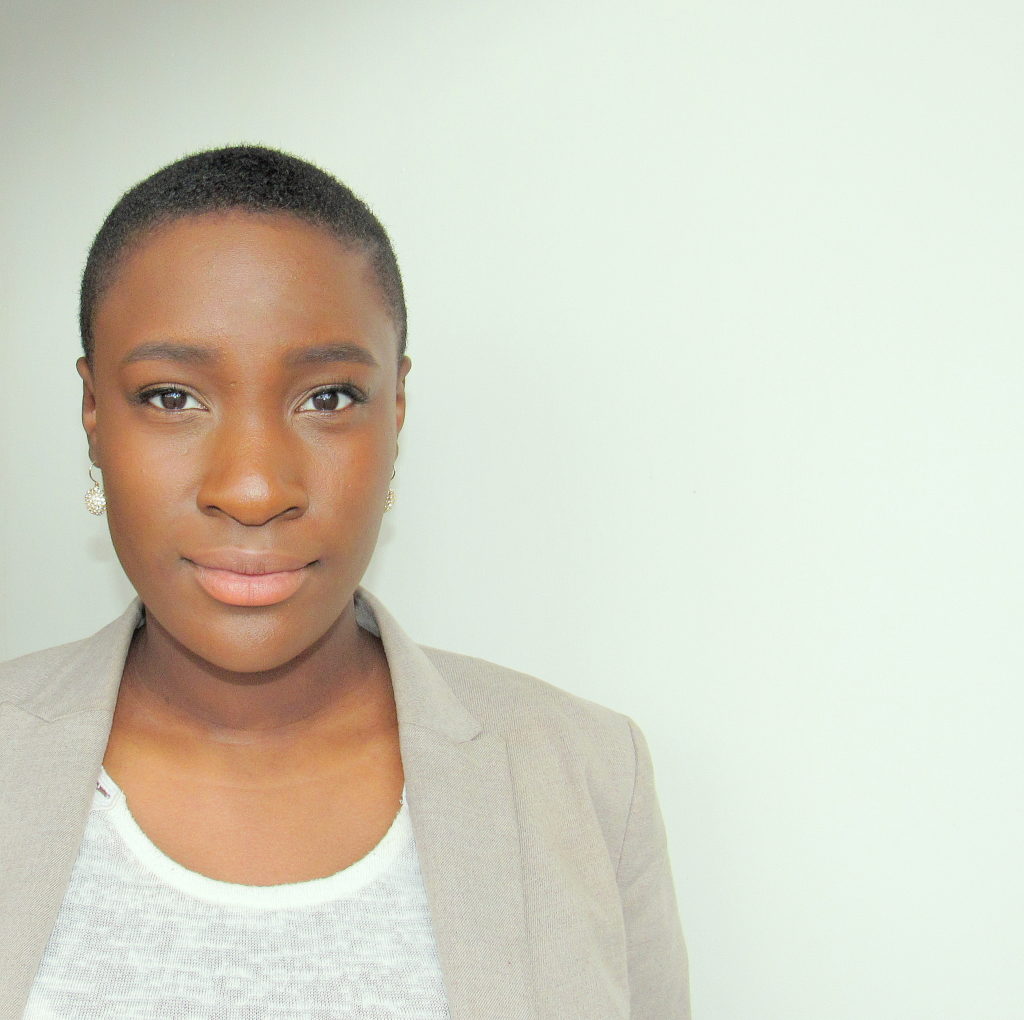
How do you feel with your new haircut? How do others perceive you?
Anne-Tso Tchissambou: I feel like everyone has their signature hairstyle which they go back to every once in a while and with which they just feel like themselves. This new short haircut might become mine. I love how low maintenance it is and how it almost cries out: “This is me, here I am!”. At first I didn’t recognize myself in the mirror, but now having no hair already feels like the most normal thing in the world to me. Apparently, I appeal older now (I’m currently 23) and others perceive me as more severe, which is fine by me as I have a rather child-like voice. So, I don’t mind.
What was the feedback from your surroundings? Have there been negative comments? If yes, how do you deal with them?
Anne-Tso Tchissambou: The feedback was predominantly positive. I did not expect such a response. Many congratulated me on my “courage” to have taken this step. Somebody even wrote me a message saying I would set a great example for “the black woman”. Astonishingly, there were little to no negative comments. Although I cannot speak for what has not been said to me directly of course. Either way, had there been any mean comments, they wouldn’t have affected me to be honest. Over time I have gained enough self-confidence to not allow this stuff to get to me anymore. That has not always been the case. I remember times where I would go for the craziest hair styles only to to live up to the western ideal of beauty. Even more so, since I grew up in the German countryside with hardly any demand for my hair type. Let alone my skin tone in terms of make-up. Looking back, that makes me really sad and I don’t like looking at old photos of me. Today I feel so much more comfortable and free to make decisions of my own. Being who I want to be. I will definitely keep this short hair style long term.
///
Thank you Anne-Tso for sharing your hair story and pictures with us. I am in love with your new haircut.
Check out my article “F**k Aociety’s Idea of Beauty“
We would like to share more Frolicious hair stories. Therefor we need you. Please feel free to send us max 2-4 pictures of your hairstyle and just answer the questions.
Be FROLICIOUS – Be You !

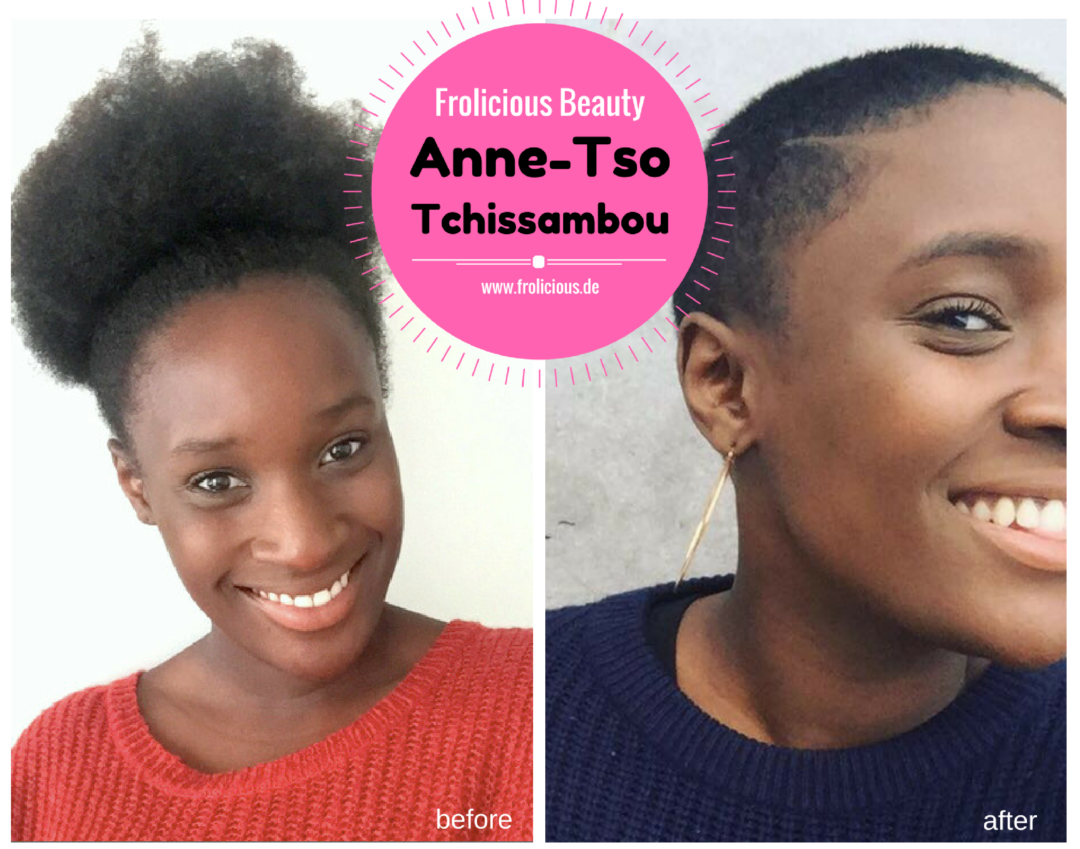
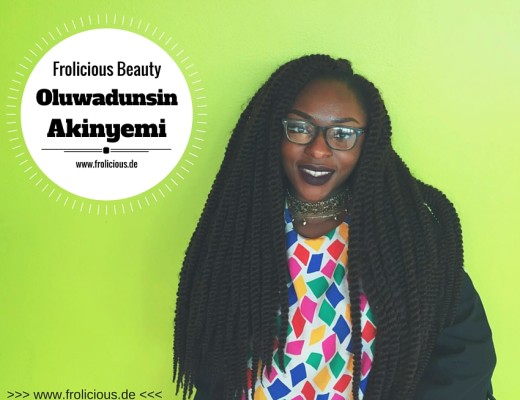
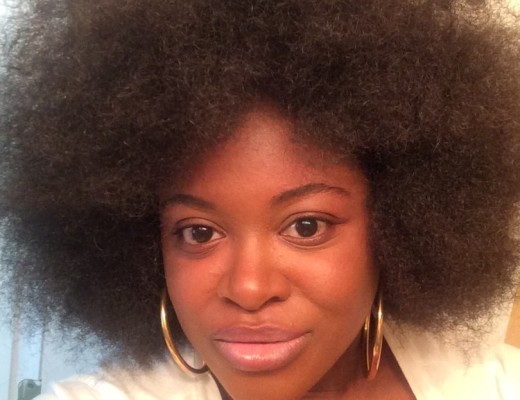



No Comments